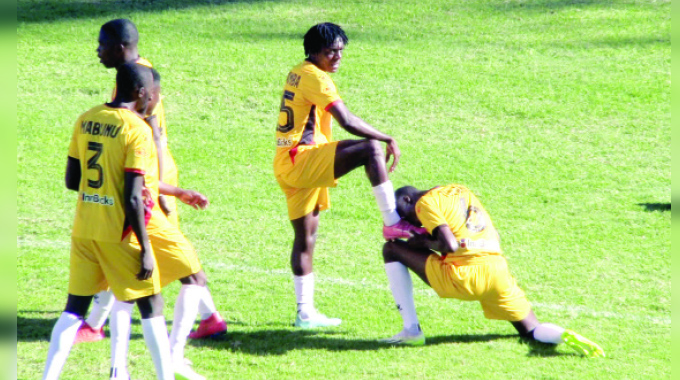SRC mourn inaugural chair Pichanick

Sikhumbuzo Moyo, Acting Sports Editor
THE Sports and Recreation Commission has attributed the setting up of its secretariat to the late inaugural chairman of the commission Alwyn Pichanick who passed on in Australia at the age of 84.
Pichanick was the first chairman of the Sports and Recreation Commission when it came into existence in 1991 following the recommendations of the Presidential Commission of Inquiry into the Organisation and Administration of Sport in Zimbabwe also known as the Tommy Sithole Report of 1989.
In his condolence message, the SRC’s acting director general Joseph Muchechetere said the Commission learnt with sadness and sorrow of the untimely death of Pichanick whom he described as a distinguished administrator.
“As we join the Pichanick family in mourning the sad loss of this giant, we shall forever be grateful for his selfless dedication to national duty as a lawyer and an astute sport administrator.
“His contribution to sport was unparalleled and invaluable. On behalf of the SRC board, management and staff we would like to collectively offer our heartfelt condolences to the Pichanick family. Our thoughts are with his family and may the Lord Almighty comfort them during this dark period,” said Muchechetere.
The acting director general said although Pichanick had retired, his wise counsel was always welcome as he was a reservoir, repository and a fountain of knowledge in both sport and law.
“Alwyn was a distinguished lawyer and a sport administrator who served as the president of Zimbabwe Cricket for many years before his elevation to lead the country’s supreme sports controlling body. He shall be remembered for having managed to put in place the structure of the Sports and Recreation Commission secretariat which is still subsisting to date.
“It was also during his tenure that a number of milestones were recorded like the cooperation agreement between the SRC and the Norwegian Olympic and Paralympic Committee and Confederation of Sport (NIF), the hosting of the All Africa Games in 1995 and the creation of more opportunities for the less privileged members of societies to access sport and recreation through the Sport For All programme among other such initiatives.
“He was also instrumental in ensuring that the governance of sport was streamlined in order to ensure that National Sport Associations operated in a manner that would attract investment to their sport codes.
“He contributed significantly to the registration of National Sport Associations which is a legal requirement under the SRC Act,” said Muchechetere.
Pichanick served as ZC president from 1976 to 1990, working selflessly and tirelessly to elevate the game of cricket in Zimbabwe to world-class standard.
Just two years after he passed the baton at ZC, Zimbabwe was granted Test status — a well-deserved reward for the hard work that Pichanick and his colleagues, among them his successors David Ellman-Brown and Peter Chingoka, had put in over the years.
Although he did not represent his country as a player, Pichanick was a competen all-rounder at Prince Edward School before he went on to play for Old Hararians and Mashonaland.
After graduating with a law degree from the University of Cape Town, he joined the respected law firm Wintertons as a partner in 1956 and enjoyed a distinguished career as a legal practitioner.
Between 1972 and 1975, Pichanick served as a national selector as well as team manager for the national cricket side that competed in South Africa’s Currie Cup.
After a four-year stint as a Member of Parliament, Pichanick became the first chairman of the Sports and Recreation Commission in 1991, an appointment that bears testament to his reputation as a respected administrator beyond cricket circles.
His funeral is set for this Friday in Buderim, near Brisbane, in Australia.
Meanwhile, former Zimbabwe Cricket chairman Peter Chingoka says veteran sports administrator, Alwyn Pichanick, was an endless fountain of knowledge from which he drew guidance to lead the national game.
Chingoka said he had lost a pillar of strength.
‘’Alwyn was an endless fountain of knowledge to me, the one I always turned to for guidance when I had the responsibility of leading our cricket and I always found his input to be the best and it helped us a lot, especially during the early years of our time as a Test cricket nation,’’ said Chingoka.
‘’When they say cricket is a game for gentlemen, they must have people like Alwyn in mind because he was simply that — a man of integrity and who would always strive to make sure that we become better as a nation.
‘’He was very passionate about cricket, in particular, and all the other sports disciplines in general and while he was a man of very few words, everything he said was worth its weight in gold.
“It’s sad that he is no more but I also believe we have to celebrate the chance that we were given to be in his company because it’s not every generation that gets such a privilege and we will miss him a lot.’’
Chingoka said the history of Zimbabwe Cricket will never be written fully without reserving a number of chapters to the massive contribution which Pichanick made.
“He was a pillar of our strength, the one who always provided some light in the darkness and the great thing about Alwyn is that he always meant what he said, never one to mislead you, and we will always cherish his great contribution to cricket in particular and sport in general.’’ — Additional reporting by our Harare Bureau










Comments